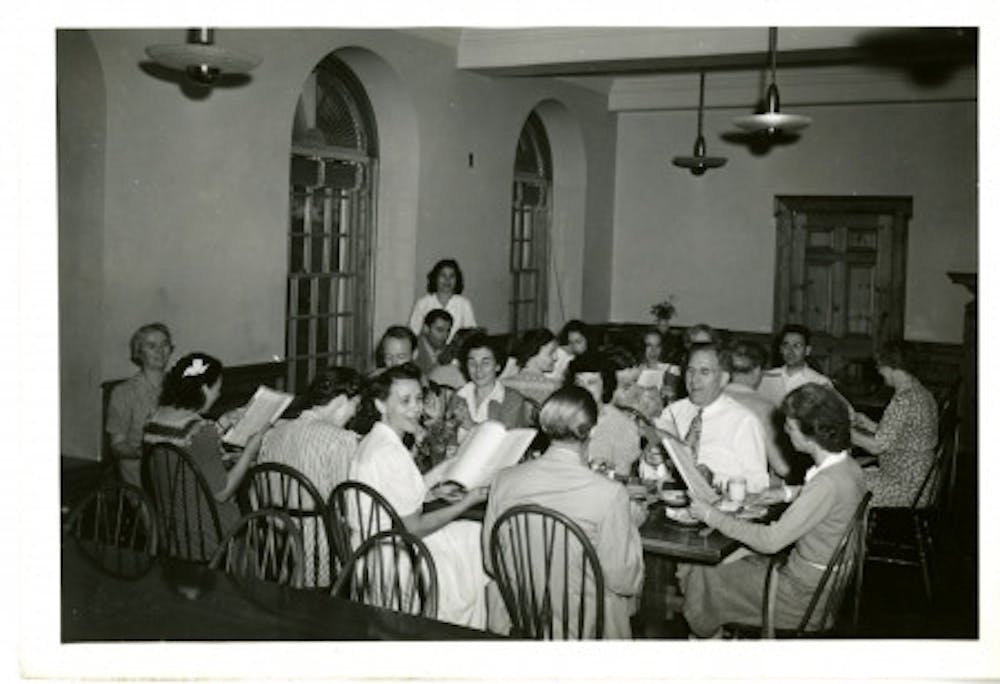In honor of 100 years of commitment to foreign languages, the Middlebury Language School will celebrate its centennial with a special weekend of cultural events, lectures and panels on July 15 to 17. The wide assortment of activities, speakers and performances are open to all Middlebury students as well as to the Middlebury community.
In 1915, founder of the College’s first language school, Lillian Stroebe, was on a train from Burlington to Rutland when she spotted the College’s campus situated on a picturesque hill. The isolation and beauty of the College was the ideal place for Stroebe to employ her vision of beginning an immersive German language school. Stroebe presented her idea to the College’s administration, and they agreed to devote the summer months of Middlebury’s campus to learning foreign languages. The concept quickly expanded with the addition of French and Spanish to the German language school in 1916 and 1917.
Although Stroebe’s idea is now 100 years old, her philosophy and commitment to fostering a community of global learners remains pertinent, critical and the guide to Middlebury’s current language programs.
Director of the German school, Bettina Matthias, attests to the ingenuity of Stroebe’s idea that prevails today.
“The original idea and implementation was visionary and ahead of its time both pedagogically and intellectually,” she wrote in an email. “The Language Schools have a sort of magic that has really helped us stay so strong, and I firmly believe that it is and will be one of the foundations of a healthy future.”
Today, Middlebury Language Schools have an impressive global reach and influence. After beginning with only one language and 47 students, the program now has expanded to included eleven languages and has had over 50,000 students, with 12,000 students earning degrees.
Studies have shown that students of Middlebury Language Schools develop greater language proficiency after one summer of attendance than after a semester, and sometimes even a year, abroad. Students of the language schools not only acquire fluency, they also develop deep bonds with their peers and instructors that are reinforced by a mutual commitment to a summer of complete immersion.
For over a year, a centennial committee has planned a celebration and conference that will include phenomenal guest speakers, world-renowned cultural performers, delicious dinners and a culminating dance. The conference is divided into five panels themed: Framing the Global Academic Agenda; Language and Identity: Putting Your Self on the Line; Working Without Subtitles; The ‘Secret Sauce’: Selling Global Products in Local Markets; Language Schools 2.0: The Next Century. The Conference is bookended by extraordinary speakers; opening with Management Editor of The Economist, Adrian Wooldridge, and closing with Director of George Washington University’s School of Media and Public Affairs and Middlebury alum and trustee, Frank Sesno.
In addition to providing stimulating panel discussions, the celebration will include cultural performances from language school alums and participants. The final night of the event will culminate in a ball for which attendees are to dress in outfits from the year 1915 that align with the culture of their language.
Following the dance are fireworks. For current students of the language program, the Language Pledge will be suspended when participating in conference events or activities that require the use of English; an exception Michael Geisler, Vice President of the Middlebury Language Schools, asserts he will only make every 100 years.
While the event will acknowledge and celebrate the accomplishments of the past 100 years, it also highlights the greater objectives of the schools in the future.
Geisler, seeking to put the celebration in a global context, said that the theme of the conference poses a question that goes beyond recognizing the importance of languages and asks why the study of languages is essential.
“A knowledge of the local culture is necessary in order to understand the way in which global issues are articulated, understood and dealt with in different parts of the world,” Geisler said. “This knowledge can only be acquired through knowing the language spoken in that part of the world.”
Geisler hopes to increasingly use technology and social media to improve the Middlebury Language Schools. He sees potential in using technology and social media as a means of creating an online learning environment, which will allow students to take a part of the language school with them as they continue to learn and connect virtually with teachers and peers after the program’s completion.
Language Schools Celebrate Centennial with Weekend of Cultural Events and Dance

Comments


